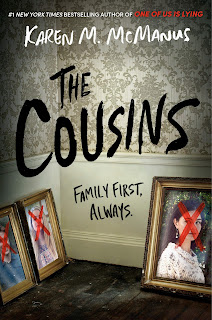One of the perks of being a teacher is that my entire job is centered around learning. I LOVE learning new things, in so many different subjects. One thing I’ve been passionate about for years is the topic of environmental injustice, and I’ve been lucky enough to share that with my students.
As a native Michigander (?) I’ve always been surrounded by industrialization. When we lived in Lincoln Park, we were practically a stone’s throw away from dozens of factories, spewing out puffs of smoke into the air against a city skyline. Eventually, we moved to the suburbs, but there were still traces of the industries, with places named after Henry Ford or Sebastian Kresge.
I didn’t learn about the implications of those puffs of smoke until much later in life, even after college. A coworker brought up the idea of superfund sites while we were reading a book about water pollution in the Great Lakes. A whole world of pollution, government ignorance, and downright capitalist manipulation opened up before me. And of course, the environmental racism is more clear than a block of fresh, Northern Michigan ice.
Over the years I’ve fine-tuned a class that puts the environment here in Michigan at the center. Students learn about the logging industry, read ads from chemical companies, and even look at government documents concerning chemicals in the water. It’s horrific that I had so much to work with in terms of authentic materials. There are several superfund sites (aka, areas of ridiculous pollution) within a short distance of the building where I teach.
The Flint Water Crisis didn’t start until about four years into my teaching career. It was and continues to be a story of governmental ignorance and a lack of respect for human life. At the time I watched as a city only a half-hour to the north struggled for even the most basic right for clean water.
There were of course water bottle drives and all sorts of “aid” sent in from the predominantly white suburbs surrounding the area once Governor Snyder finally declared an emergency for the city. While it’s nice to offer the aid, I couldn’t help but think of it as a band-aid. So many people considered this to be a big “accident,” but it definitely wasn’t. I decided my students should have firsthand experience in researching an event as it unfolded.
As a teacher, we look for what we consider “authentic learning experiences.” These are moments where students look beyond a piece of literature (Oh Shakespeare, I despise thee!) or well-scripted lesson plans and see the reality of the world around them. Artifacts of authentic learning can be a newspaper in Spanish for a foreign language class or learning how a water filter works by having a specialist meet with students.
For the Flint Water Crisis, there were dozens of articles, interviews, and short videos from the activities. There are reports from the government claiming there are no issues with lead whatsoever. They understated the long-term effects, sometimes making up numbers or misleading the public with stats that didn’t make sense. Workers who came to test the water in houses flushed it first by letting it run for a little while, another tactic to misrepresent the lead amounts. The amount found in some of these houses was toxic. They found lead in the schools, and the hospitals switched to bottled water only.
My students heard and read everything with a critical eye. They examined reports and put them up against the crisis timeline. We watched the press conferences in horror because we had the facts opened up neatly in front of us. The magnitude of the crisis was almost incomprehensible because we will never know just how much damage it has done. People died from Legionnaire's Disease, women suffered miscarriages, children may be affected with brain damage for the rest of their lives.
At the end of the semester, my students will do a final project and share their findings of Flint with their classmates. It’s beyond affirming to see a group of teenagers get interested in activism, and I like to think that they leave my class with more awareness of their space in this world. My bare minimum is that they learn to ask questions, to always question if something does not look right.
I’ve taught this class many times with varying results. Sometimes the makeup of students in that class is quieter, and in other semesters I found myself working hard to keep them engaged with the content. As a teacher, it’s my responsibility to always fine-tune my craft, so I’ve never taught this class the same way twice. There’s always something to add, a new resource, a different way to teach this. I’m lucky to be in an environment where I have the ability to be flexible with my students.
When I started teaching about the Flint Water Crisis this year, I honestly didn’t know what to expect. I was still recovering from COVID, many of my students were not in the building, and the pandemic still raged on. Considering that I couldn’t even talk for more than a few minutes at a time without gasping for air, planning, and execution of lessons was difficult. I did my best, always wishing that I could do more.
Turns out that I COULD do more, but it would take some emails, schedule wrangling, and a bit of creativity!
Considering the length of this post, I think I’m going to do a second part! Stay tuned!
~Kristen


No comments:
Post a Comment